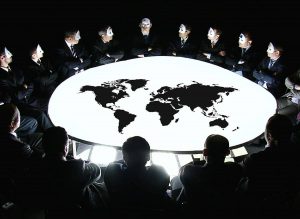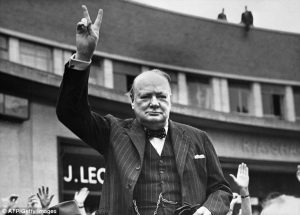The Imperial Political Elite Establishment’s Strategies for Protecting British Power
“Parties do not merely represent the interests and opinions of their supporters. Their role in forming and educating public opinion is also notable.”3 This role has grown quite substantially in modern times as means of communication have improved sharply. Also parties themselves have developed more efficient and comprehensive publicity departments and research teams. “The proper working of a party system depends on certain assumptions. No party majority should be permanent and there must be a good measure of tolerance between the parties. Each party must accept and abide by the fundamental premises of the constitution; and member should be free to join or leave the party at will. These assumptions are closely bound together and cannot exist in isolation.”4
The leader of the majority party in the House of Commons forms the government and he/she is called the Prime Minister. The Prime Minister is the most powerful member of the British government. “He is the principal adviser to the Crown and the person who exercises most of the Crown’s constitutional powers. It is also his task to inspire policy and to act as the chief mediator between opposing groups in his party and between his party and the electorate.”5 It must not be forgotten that if the Prime Minister wishes the government to remain in power he/she must always remember the need to keep colleagues and supporters happy. The Prime Minister, like his/her minister, is restricted by the conventions of ministerial and collective responsibility.
Inside this corporate body, of all ministers being jointly responsible for policy (or as it is colloquially referred to, ‘the government’), is the inner council of ministers, known as the Cabinet. The Cabinet is the policy-making body and prime-mover. It consists of the Prime Minister and a group of about twenty or so other ministers, particularly those who lead key departments such as the Ministry of Defence, the Foreign and Commonwealth Office (Colonial as it used to be known), Treasury, Home Office and so forth.
Within the House of Commons the Cabinet conducts a dialogue with the opposition, which is led by its own ‘Shadow Cabinet’. The Cabinet controls the time-table of the House within certain limits laid down by standing orders, it initiates most laws and all financial measures and it carries on the day-to-day administration. “It must at all time convince its back-benchers, although these are likely to be three-quarters convinced already by the exhilaration of being on the governing side of the House. On the other hand, it faces the opposition and it is primarily with this, the minority in the House, that the dialogue is nowadays conducted.”6
Each Cabinet member is individually responsible to the Commons. This is for the purely departmental aspect of their duties and also for matters of personal conduct. “If he commits a personal fault, like Mr. Profumo in 1963, or if he makes a hash of departmental management, like Sir Thomas Dugdale in 1954, and the House feels he should resign and the Cabinet is unwilling to protect him then a minister may have to resign, though the convention is more honoured in the breach than the observance. For policy, however, the entire Cabinet assume a collective responsibility: ‘one out, all out’. A minister who disagrees with the policy must either grin and bear it, or resign. The secrecy of Cabinet proceedings serves to make this doctrine of collective responsibility practical.”7



